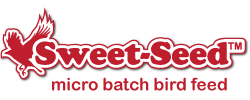How to Choose the Best Bird Feeder

When you're just getting started feeding birds, it can be intimidating to choose that all-important first bird feeder. With many different brands, sizes and styles to choose from, which one will get you and your backyard birds off to a good start? By asking yourself some basic questions, it can be easier than you think to choose the best first feeder for your yard.
- What Birds Are In Your Neighborhood? There is no use in trying to feed birds that are not at home in your neighborhood – the entire range or habitat may be wrong for them. You can, however, ask other local bird feeders, birding groups or nature store owners what birds are already abundant in the area and are likely to come to feeders. This will help you choose the right style of feeder those birds will be comfortable visiting.
- What Birds Do You Want to Feed? There are dozens of birds that may visit your feeders, but you might not want to be feeding all their hearty appetites. If you are most interested in hummingbirds, you will need an appropriate nectar feeder. Clinging birds like chickadees and goldfinches, however, prefer a mesh feeder or platform. Larger birds such as cardinals or doves are comfortable at big platform feeders or hoppers. Orioles need larger nectar or fruit feeders. Some feeders are designed to be attractive to multiple birds, but if you can narrow down your feeding preferences you will be more successful.
- What Foods Will You Offer? Every type of bird food will not fit in every type of bird feeder. Very fine seeds, such as millet or Nyjer (thistle), will blow out of a large platform feeder, but whole nuts or large sunflower seeds cannot fit in smaller feeders. Dish feeders with steep sides are essential for mealworms, and suet feeders need to be accessible for birds to peck away. Nectar feeders are more specialized, of course, and there are also unique nut feeders. Platform, dish or tray feeders are the most versatile options, but aren't always right for every yard.
- Where Will You Put Your Feeder? Do you have a convenient tree branch where your feeder can hang, or do you need an extra pole or hook? Some feeders cannot be hung at all and need to be placed on a safe, level surface, and there are even small feeders with suction cups to attach to windows. Check how different feeders are hung – the types of hooks, hook sizes, chains, hanging bars and other accessories they use can be quite different and may not work in your yard.
- What Other Wildlife Lives in Your Neighborhood? Birds aren't the only visitors to backyard bird feeders, and unless you want to provide a smorgasbord for the entire neighborhood, you may need to be prepared to deter squirrels, chipmunks, mice, raccoons, deer and even bears. Investigate what baffle options are best for the critters you may see, and choose a sturdy feeder that can resist their unwanted attention.
- How Much Maintenance Are You Willing to Do? All bird feeders need regular cleaning and care to stay in good condition, but some styles will need more work than others. A wooden feeder, for example, is more likely to crack under the stress of extreme weather, while plastic feeders can be very durable but may be chewed by pests. Glass feeders are easy to clean, but could be more easily broken. Carefully examine feeders you like to choose one that will withstand good use in your local weather conditions, and be sure you have the proper brushes to keep it clean and safe for birds to use.
- How Much Do You Want to Spend? There are feeders available for any budget, from just a few dollars for a simple, functional feeder to a hundred dollars or more for more elaborately engineered models. You can even commission a customized feeder for a one-of-a-kind bird feeding experience. While birds don't care about the price tag of a feeder, you will want to choose one that is expensive enough to be good quality, but not so expensive that you can't afford to fill it with good food.
Asking yourself a few key questions can help you learn more about bird feeders and understand which feeder will best meet your backyard birding expectations. Once you have that first feeder in your yard, you'll be sure to enjoy the birds that appreciate it.
Image by Gerhard G. from Pixabay